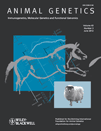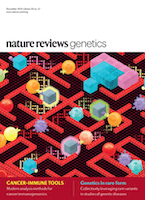
Vavilovskii Zhurnal Genetiki i Selektsii
Scope & Guideline
Advancing the Frontiers of Genetics and Selection
Introduction
Aims and Scopes
- Genetic Diversity and Breeding:
The journal extensively covers research on genetic diversity in various species, particularly crops, and explores advanced breeding techniques to enhance agricultural productivity and resilience. - Molecular Genetics and Genomics:
Research published in the journal often focuses on molecular genetics, including the study of gene expression, genetic markers, and genomic analyses, which are crucial for understanding complex traits and developing improved varieties. - Plant Pathology and Resistance Mechanisms:
A significant emphasis is placed on the genetic and molecular mechanisms underlying plant resistance to diseases, pests, and environmental stressors, promoting sustainable agricultural practices. - Environmental Genetics and Adaptation:
The journal investigates the genetic basis of adaptation to various environmental conditions, shedding light on how species evolve and maintain genetic integrity in changing climates. - Biotechnology and Genetic Engineering:
The application of biotechnological approaches, including CRISPR and other gene editing techniques, is a consistent theme, highlighting innovations in crop improvement and disease resistance.
Trending and Emerging
- Genomic Selection and Precision Breeding:
There is a rising trend in the application of genomic selection techniques, which leverage genomic data to enhance breeding efficiency and accuracy, particularly in crop improvement. - CRISPR and Genome Editing Technologies:
Research focusing on CRISPR and other genome editing technologies is increasingly prominent, reflecting a growing interest in precision genetics and its applications in both plants and animals. - Epigenetics and Environmental Interactions:
Studies exploring the role of epigenetics in gene regulation and environmental interactions are gaining traction, highlighting the complexity of genetic expression in response to external stimuli. - Microbiome and Plant Interactions:
Emerging research on the interactions between plant genetics and microbiomes indicates a significant trend, emphasizing the importance of these relationships for plant health and productivity. - Bioinformatics and Computational Genetics:
The integration of bioinformatics tools in genetic research is on the rise, as researchers increasingly utilize computational approaches to analyze complex genetic data and improve breeding strategies.
Declining or Waning
- Traditional Breeding Techniques:
There has been a noticeable decrease in papers focusing solely on traditional breeding methods, as the field shifts towards more advanced genetic and biotechnological approaches that offer faster and more precise results. - General Plant Physiology Studies:
Research that broadly addresses plant physiology without a strong genetic or molecular component appears to be declining, as the journal emphasizes more genetic and genomic insights. - Animal Genetics and Breeding:
Although animal genetics is still a topic of interest, the volume of research dedicated to this area has waned compared to the growing emphasis on plant genetics and breeding innovations.
Similar Journals

ANIMAL GENETICS
Unlocking the Secrets of Animal BiologyANIMAL GENETICS, published by WILEY, is a leading journal in the fields of Animal Science and Zoology, with a commendable Q1 classification for 2023, reflecting its critical role in advancing research and knowledge in animal genetics. Established in 1986, this journal has become a cornerstone for professionals, researchers, and students alike, providing a platform for innovative research that explores the genetic underpinnings of animal biology. With an ISSN of 0268-9146 and an E-ISSN of 1365-2052, it boasts a significant impact in both agricultural and biological sciences, as indicated by its ranking of #74 out of 490 in its category on Scopus, positioning it in the 85th percentile for Animal Science and Zoology. Readers can access high-quality, peer-reviewed articles that not only illuminate current advancements but also foster future research directions. While currently not an open access journal, ANIMAL GENETICS remains vital for anyone engaged in the exploration of genetics and its applications in medicine and beyond, with a continual commitment to publishing findings that shape the future of animal breeding, conservation, and genetics research.

MOLECULAR BREEDING
Unlocking the Future of Crop Resilience and GeneticsMOLECULAR BREEDING is a prestigious journal published by Springer, dedicated to advancing the field of agronomy, plant science, and biotechnology through innovative research contributions. With an impressive ISSN of 1380-3743 and E-ISSN 1572-9788, this journal has continuously served the scientific community since its inception in 1995. Operating from the Netherlands, MOLECULAR BREEDING is recognized for its high impact factor and status in the Q1 quartile for both Agronomy and Crop Science and Plant Science in the latest 2023 metrics, highlighting its influential role in these domains. With strong Scopus rankings reflecting its position within the top percentiles of various related fields—including a notable 81st percentile in Plant Science—this journal is essential for researchers, professionals, and students striving to understand and innovate in molecular genetics and breeding techniques. Although it does not provide open access, its rigorous peer-review process ensures that published articles maintain the highest standards and contribute significantly to the scientific discourse. The journal’s diverse scope encompasses significant advancements in molecular biology and genetics, ultimately supporting the global objectives of sustainable agriculture and enhanced crop resilience.

MOLECULAR GENETICS AND GENOMICS
Fostering Collaboration in Genetic and Genomic SciencesMOLECULAR GENETICS AND GENOMICS is a distinguished journal published by SPRINGER HEIDELBERG that serves as a pivotal platform for the communication of cutting-edge research and developments in the fields of genetics, molecular biology, and medicine. With an ISSN of 1617-4615 and an E-ISSN of 1617-4623, this journal has established itself since its inception in 1994 as a significant resource for researchers aiming to explore the complexities of genetic interactions and their implications in various biological systems. The journal is indexed in Scopus, with respectable rankings in the Genetics, Molecular Biology, and Biochemistry categories, showcasing its position within the academic community. It is categorized in the 2023 rankings as Q3 in Genetics, Q2 in Medicine (miscellaneous), and Q3 in Molecular Biology, indicating its relevance and quality in the scientific discourse. The journal also promotes open access, ensuring that researchers and professionals can easily share and advance knowledge in the rapidly evolving disciplines of molecular genetics and genomics. As the journal continues to bridge the gap between experimental and theoretical research, it presents a vital space for innovation, fostering collaborations and scholarly exchange among its readership.

Gene Reports
Exploring the Frontiers of Genetic ScienceGene Reports is a prominent academic journal published by Elsevier that focuses on the rapidly evolving field of genetics. Launched in 2015, this journal serves as a pivotal platform for the dissemination of cutting-edge research, bridging the gap between basic and applied genetics studies. Although it currently holds a Q4 ranking in the Genetics category and stands at the 248th position out of 347 in Scopus rankings, its potential for growth is significant given the increasing interest in genetic research across various disciplines. With an E-ISSN of 2452-0144, Gene Reports aims to provide open access to original research articles, reviews, and short communications that advance the collective understanding of genetic mechanisms and their applications. As a publication that continues to shape the future of genetics, it is an essential resource for researchers, professionals, and students seeking to stay informed about the latest developments in this crucial field.

NATURE REVIEWS GENETICS
Pioneering Reviews in the World of Genetics.NATURE REVIEWS GENETICS, published by NATURE PORTFOLIO, stands as a leading journal in the field of genetics, boasting a remarkable reputation reflected in its Q1 ranking across multiple categories including Genetics, Clinical Genetics, and Molecular Biology. With an impressive percentile of 99th in both Genetics and Clinical Genetics, as well as a solid rank in Molecular Biology, this journal is pivotal for researchers, professionals, and students alike who seek to stay informed on the latest advancements and comprehensive reviews in genetic research. The journal's scope encompasses a wide array of topics, providing in-depth insights from fundamental genetic principles to clinical applications, underscoring its importance in bridging basic science and medical practice. Though not an open-access publication, it remains accessible through various academic institutions, enhancing its reach and influence within the scientific community. With publication years spanning from 2000 to 2024, NATURE REVIEWS GENETICS continues to shape the future of genetics research and education.

GENES & GENETIC SYSTEMS
Shaping the Future of Genetic Science and MedicineGENES & GENETIC SYSTEMS, an esteemed journal published by the Genetics Society of Japan, serves as a vital platform for the dissemination of innovative research within the fields of genetics, molecular biology, and medicine. Established in 1996 and based in Mishima, Shizuoka, Japan, this journal has actively contributed to the academic community, fostering collaboration and knowledge sharing among researchers and professionals. The journal’s impact can be seen through its category quartiles, which reflect its position in Genetics, Molecular Biology, and Medicine, and while it currently ranks in Q4 in Genetics and Q3 in Medicine (miscellaneous), it is poised for growth as it continues to publish pivotal studies. With a commitment to open access, GENES & GENETIC SYSTEMS ensures that research findings are freely accessible to the global scientific community, promoting a more inclusive approach to knowledge distribution. This journal is essential for students, researchers, and professionals seeking to stay informed of advancements in genetic research and its implications for the broader field of medicine.

Frontiers in Genetics
Connecting Researchers to the Future of GeneticsFrontiers in Genetics is a premier academic journal dedicated to advancing the field of genetics through high-quality, peer-reviewed research. Published by FRONTIERS MEDIA SA in Switzerland since 2010, this Open Access journal provides a platform for researchers and practitioners to disseminate innovative findings across various subfields, including clinical genetics and molecular medicine. With a notable emphasis on interdisciplinary approaches, the journal holds a strong position in the academic landscape, achieving Q2 rankings in key categories such as Genetics and Molecular Medicine in 2023. Not only does Frontiers in Genetics contribute to the scholarly dialogue by publishing impactful studies, but it also promotes accessibility to vital research, ensuring that knowledge is available to a global audience. This journal is a vital resource for researchers, professionals, and students looking to stay at the forefront of genetic discoveries and their applications, reflective of its engagement with contemporary challenges in genetics and healthcare.

JOURNAL OF GENETICS
Exploring the Depths of Genetic KnowledgeJOURNAL OF GENETICS, published by the Indian Academy of Sciences, is a pivotal platform for researchers and scholars in the field of genetics. With its long-standing history dating back to 1910, this journal has consistently contributed to the academic discourse through the rigorous publication of original research, reviews, and case studies. Despite its current classification in the Q4 quartile for the 2023 metrics in Genetics, the journal plays a critical role in advancing our understanding of genetic principles, experimental methodologies, and innovations. Spanning a diverse array of topics, the journal aims to foster scholarly exchange and collaboration within the global genetics community. For researchers aiming to publish their work, accessing the journal’s comprehensive archives, which include publications from as early as 1910 to the present day, offers a valuable perspective on the evolution of genetic research. As it continues to adapt to the changing landscape of scientific inquiry, JOURNAL OF GENETICS remains a significant resource for students, professionals, and academics dedicated to exploring the complexities of genetics.

Tree Genetics & Genomes
Pioneering research in tree genetics and environmental stewardship.Tree Genetics & Genomes is a premier academic journal published by Springer Heidelberg, dedicated to advancing the field of tree genetics and genomics. Since its inception in 2005, this journal has played a crucial role in disseminating high-quality research that addresses critical questions in tree biology, horticulture, and forestry. The journal is highly regarded within the academic community, as evidenced by its impressive Q1 rankings in both Forestry and Horticulture categories for 2023 and a substantial presence in key genetic research areas. Furthermore, its Scopus rankings affirm its influence across disciplines, ranking among the top journals in Agricultural and Biological Sciences. Although currently not an open-access publication, it aims to provide authors and readers with a platform to share innovative findings and insights that shape sustainable practices in tree planting and management. With a commitment to fostering knowledge in the genetic and genomic analysis of trees, Tree Genetics & Genomes is an essential resource for researchers, professionals, and students alike, contributing to the global understanding of tree biology and its environmental significance.

GENETICS AND MOLECULAR BIOLOGY
Advancing the frontiers of genetics and molecular biology.GENETICS AND MOLECULAR BIOLOGY, published by the SOC BRASIL GENETICA, is a prominent journal dedicated to the advancement of knowledge in the fields of genetics and molecular biology. Since its inception in 1998, this Open Access journal has served as a vital platform for researchers, professionals, and students to disseminate their findings and engage with the latest innovations and discoveries. With an impact factor that reflects its growing influence, GENETICS AND MOLECULAR BIOLOGY ranks in the Q3 category for both genetics and molecular biology as of 2023, indicating its position within the academic community. The journal is indexed in Scopus, highlighting its commitment to maintaining rigorous peer-review standards while providing wide-reaching access to quality research. Operating out of Ribeirão Preto, Brazil, it fosters a collaborative environment for academic discourse and research development not only in Brazil but also globally. The journal encourages submissions that explore a wide range of topics in genetics and molecular biology, making it an essential resource for anyone involved in these dynamic fields.